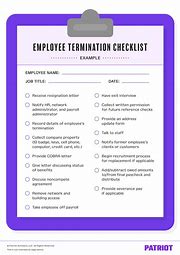Equity Group, Kenya’s prominent bank, led by CEO James Mwangi, has recently made waves with a significant and unprecedented decision to dismiss more than 1,200 employees following an intensive internal investigation into fraudulent activities that have cost the institution over $15.4 million in the past two years. This move, described as one of the largest anti-fraud actions taken by a Kenyan bank in recent memory, underscores the seriousness with which Equity is addressing internal misconduct and collusion with fraudsters.
The revelation that some funds were unlawfully transferred to offshore accounts through staff involvement has sent shockwaves through the banking sector and beyond. The high-profile case involving transfers to Abu Dhabi highlighted the depth of the illicit activities within Equity Group. This incident not only tarnished the bank’s reputation but also raised concerns about governance issues prevailing in Kenya’s financial landscape.
James Mwangi’s unwavering commitment to combatting fraud was evident when he stated,
“The moment of reckoning has come… I will protect the customers and the bank. I will be ruthless.”
Such strong words reflect his determination to uphold integrity and trust within Equity Group while sending a clear message that fraudulent behavior will not be tolerated under his leadership.
The strategic decision to dismiss an initial group of 200 employees quietly marked the beginning of this sweeping clean-up operation on May 20. However, the subsequent wave of layoffs affecting over 1,200 staff members signifies a monumental shift in Equity’s ethos and its approach towards maintaining ethical standards within the organization. As Mwangi hinted at extending investigations across all seven markets where Equity operates, it became apparent that more heads could roll as part of this ongoing initiative.
Mwangi emphasized that any form of compromise between customers and staff is unacceptable under Equity’s zero-tolerance policy regarding conflict of interest. His analogy warning against such practices captures the gravity of the situation:
“If you have ever eaten Mama Mboga’s chicken, the moment has come.”
This metaphorical reference underscores his stance against any form of unethical conduct or favoritism within customer-staff interactions.
Despite its laudable efforts in promoting financial inclusion across multiple African countries, including Kenya and Uganda, Equity Group found itself grappling with vulnerabilities stemming from rapid digital advancements and escalating transaction volumes. These challenges exposed weaknesses in internal controls and underscored a pressing need for reinforcing ethical conduct among employees.
In conclusion, Equiyt Group’s decisive action reflects a pivotal moment not only for the institution itself but also for Kenya’s banking sector at large. By demonstrating zero tolerance towards fraud and malpractice within its ranks, Equity sets a precedent for other financial institutions to prioritize integrity above all else—an essential step towards restoring public trust in Kenya’s banking industry.

